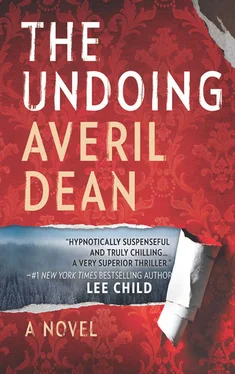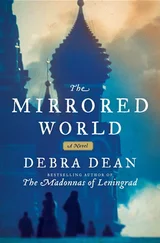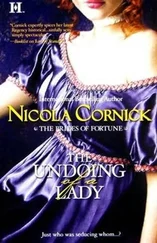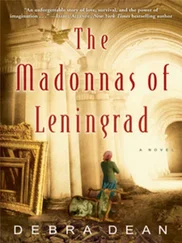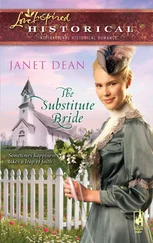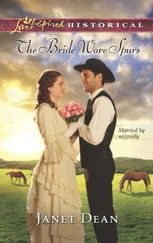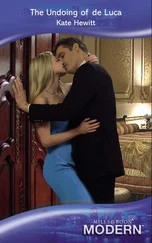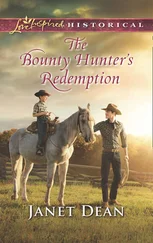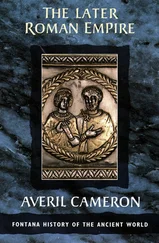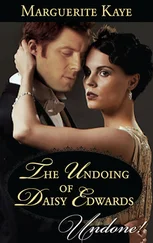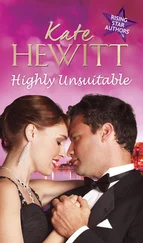Julian crossed his arms to warm himself. He hadn’t realized the hotel would be so different. In a thousand years he wouldn’t have guessed that it now belonged to Kate Vaughn.
I couldn’t let it go, she’d said, and that much he did understand. This had been a magical place with Celia in it. But the hotel was dead now. Celia had gone cold inside these walls and she was gone.
Julian leaned his head back on the unforgiving sofa and closed his eyes.
* * *
In the morning, he walked to the gas station, the only one in Jawbone Ridge. He bought a red plastic gas can and filled it at the pump.
A pickup truck had stopped beside him. The driver, a young man with sleep-flattened hair, asked if Julian needed a ride.
“No, thanks,” Julian said. “I don’t have far to go.”
Back up the hill. His feet pounded a rhythm on the gravel, the weight of his body seeming to be all in his feet while his head and torso floated helium-light up the curve of the road. To his right, the mountain rose in scrubby lumps of rock and patches of grass, where a season’s worth of pine seedlings bristled in soft pale green swaths across the earth. The ground fell steeply away left of the road, then rose again in bounding ridges along the banks of Deer Creek. He could hear the water moving—not in a rush of snowmelt, but with the runoff from an overnight storm, the water flowing rapidly in humps of white and brown.
He rounded the last bend in the road and started up the long, steep drive to the vacant Blackbird Hotel.
The first time he’d come here, it was with Celia alone. He had been familiar with nearby Telluride, having trained and competed there several times over the years, but had never found a reason to go around Bald Mountain and turn up the side road for Jawbone Ridge. But when he started seeing Kate, and spending time with her circle of friends, he began to be curious about the place. He wanted to see for himself what was going on inside the Blackbird Hotel.
Celia was sweet that day, eager as a child. She showed him through the rooms, each one littered with sawhorses, hand tools and buckets of paint. An unwieldy industrial sander was sitting in front of the fireplace. Wrappers from someone’s lunch lay crumpled on an overturned pail by the window. But as she described their plans in detail, Julian began to see it come alive.
“I like this place,” he said, looking around. “Good bones.”
Her face lit up.
“It’ll be beautiful when we’re finished,” she said. Then laughed, ducking her head. “Or, not beautiful exactly, but handsome. Proud of itself, you know? The poor thing’s been sitting up here alone for as long as I can remember. I want to fill it up.”
“You talk about the hotel like it’s a person,” he said.
She ran her hand down the sanded banister.
“Not a person, exactly. But personal.”
Afterward they went outside to sit on a slatted pine bench overlooking the river. A breeze moved through the aspen, rustling their coin-bright leaves, and from overhead they could hear the wind sighing through the pines and the occasional caw of a hidden crow. For a while, Celia was silent. Then she said she liked the sun.
“You’re not very tan, though,” he said.
“No. I only get freckles.”
Her skin was lovely in the clear light—a smooth, velvety white like the petals of a speckled flower.
“You bought this place together?” he said. “You and Eric and Rory?”
“On paper, yes. But it’s Eric’s money. His dad died a couple of years back and left him what he had.”
“You all went to the same school, I think Rory said.”
“He and Eric were in the year ahead of me.”
“Did you enjoy school?”
She considered a moment before replying.
“No.”
“Why not?”
Again she paused, thinking it over. “It’s too hard to know what the teachers want you to say.”
“They want you to say what you think.”
“Do they?”
She was quick with that, her eyes wide-open. For the first time, he began to see the guile of this girl.
“Sometimes,” he said.
They sat for a while in companionable silence. Celia didn’t rush to fill it. She was quick to catch a mood, poured herself into it like water.
“Have you always lived here?” he said.
“Since I was four, when my dad and Rory’s mom got married. He came out here on a contract to do some construction work on a new hotel—actually it was the Adelaide, one of the Vaughn properties. Didn’t you say you were staying there?”
Julian nodded.
“Beautiful, isn’t it? One of the best views around, I’ve always thought.”
“You like it up here?” Julian said. “You’re happy?”
“Yes.”
It struck him then how rare it was to receive monosyllabic responses. Most people would say, “I love the mountains” or “It’s home” or “The skiing is amazing.” This girl was content to simply say “Yes.” But her replies had weight, a forceful impact. She really meant yes; it was a firm and definite assent. She gazed down at the water, nodding gently.
Her placidity surprised him. With her wild tangle of hair and gypsy’s clothing, he would have suspected a more nomadic spirit. But Celia never expressed—to Julian, at least—a desire to travel. She sat next to him in the sunshine with her hands folded in her lap, that sweet faraway expression on her face, as if she’d left her body unattended while her mind was elsewhere.
Impossible even now to imagine a girl like that with a gun in her hands.
Julian’s gun.
He passed now through the hollow vestibule, up the curving staircase to Celia’s room. His footsteps made a slow heartbeat of sound as he came through the door, which in turn gave a tiny scream on its hinges, but when he paused at the foot of the bed—silence.
He opened his suitcase, felt around under his clothes and pulled out an old book of poems. The pages fell open to the verse that had been running through his mind since they’d arrived last night in his car. He read through the poem to the last stanza, the only one he couldn’t remember:
And so I contentedly live upon eels,
And try to do nothing amiss,
And I pass all the time I can spare from my meals
In innocent slumber—like this.
He ran his hands over the pages, the delicate drawings. Then he ripped the pages from the book, tossed the cover on the bed and twisted the papers tightly into the shape of a cone. He set this aside, uncapped the gas can and doused the bed. He splashed gasoline on the walls, opened the window, soaked the curtains and the carpet. The rest of the gasoline he carried down the hall. He turned the can upside down as he descended the staircase, leaving a small pool of fuel on the old floorboards at the bottom and another on the smooth leather cushions of the sofa. The fumes rose to his face, toxic and fragrant as perfume. He tossed the gas can aside and went back upstairs.
He retrieved the paper cone, pulled a lighter from his pocket and flicked it at the tip of the pages. Flames licked at the edge of the paper and bloomed from the cone, a fiery bouquet. At a touch, the fire sprang across the covers in looping lines that melted into a pool of blue-tipped flames. He backed away slowly, the heat rising over his skin in breathy gusts.
The tune continued to trail through his mind, fragmented and disconnected: Oh, I used to pick up and voraciously chew, the dear little boys whom I met...
From the end of the hall, he heard the room ignite in a groaning rush. A few seconds later, the first flames leaped through the open door. He dropped the fiery cone at the foot of the stairs and watched as the fire retraced his steps, up the curve of the staircase and into the hall.
He went outside and stood looking up at the old hotel. The window at the end was bright orange, the first long flames licking at the window frame as the smoke began to roll in thick clouds from the front door. An image of himself filled his mind. Walking through the burning doors, up the staircase, down the fiery hallway to Celia’s room. He would lie down in a bed of flames and rise again like the Blackbird, like a phoenix straight to the sky, absolved and reborn.
Читать дальше
